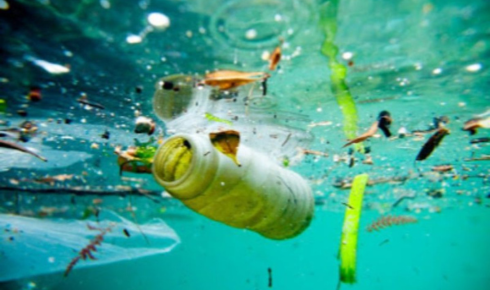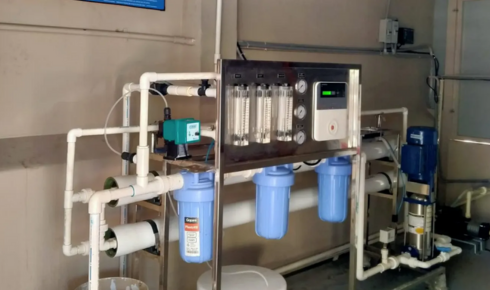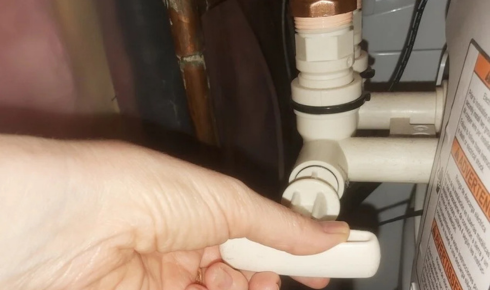Why Your Water Smells Like Rotten Eggs and How to Solve It

There’s nothing quite like grabbing a glass of water, taking a sip, and being hit with a stench that immediately turns your stomach: that unmistakable “rotten eggs” smell. For some, this occurs only occasionally; for others, it seems to persist no matter what water source they use. The experience can be unnerving, and it raises serious questions about safety and quality. If you’ve ever noticed bottled water smells like rotten eggs, you’re not alone. Understanding why this happens and what to do about it is the first step toward restoring your water’s clarity and freshness.
I remember the first time I encountered this issue in my own home. I poured water from a newly opened bottle, and the sulfurous smell hit me instantly. My first thought was that the bottle had gone bad—but after trying multiple brands, it became clear that the problem might be broader than just a single product. That’s when I realized how common this issue actually is and how important it is to know the underlying causes.
What Causes the Rotten Egg Smell?
The telltale odor is usually caused by hydrogen sulfide gas (H₂S), which has that distinctive sulfuric smell. This gas can occur naturally in groundwater, especially in areas with high concentrations of sulfur compounds or decaying organic matter. It can also be introduced during the water treatment process if bacteria react with sulfur compounds in pipes, filters, or storage tanks.
In bottled water, the problem can occur if the water source naturally contains hydrogen sulfide or if bottles are stored improperly. Over time, even trace amounts of sulfur can concentrate, causing the unmistakable rotten egg smell. While it’s typically not dangerous at low levels, the odor makes the water unappealing and can indicate bacterial contamination if left unchecked.
Bottled Water Concerns
For those who prefer the convenience of bottled water, encountering a situation where bottled water smells like rotten eggs can be frustrating. Unlike tap water, bottled water is expected to be clean and odor-free. A sulfur smell in bottled water is often due to:
- Contaminated source water.
- Inadequate treatment or filtration during bottling.
- Poor storage conditions that allow bacteria to grow.
If you notice this smell, it’s best not to consume the water until you verify the source and quality. Contacting the supplier or switching brands can quickly resolve the problem while ensuring safety.
Troubleshooting Household Water
If the smell is coming from your tap, it may indicate an issue with your home plumbing or water source. In many cases, homeowners notice a sulfur smell when using hot water because water heaters provide an ideal environment for certain bacteria to react with sulfate minerals. This reaction can release hydrogen sulfide gas, producing that familiar rotten egg odor.
Learning water smells like rotten eggs how to fix is essential to restoring fresh-tasting water at home. Depending on the cause, solutions may include:
- Flushing your water heater to remove sediment buildup.
- Disinfecting pipes and tanks to reduce bacterial growth.
- Installing or maintaining proper filtration systems to remove sulfur compounds.
Even simple maintenance, like regularly draining and flushing your water heater, can make a significant difference in reducing the odor.
When to Worry About Safety
While hydrogen sulfide is primarily an aesthetic concern, certain conditions may warrant caution. High concentrations of H₂S can be toxic, though this is rare in household water. More commonly, the presence of sulfur bacteria or other microorganisms could indicate conditions that support harmful bacteria. If water has a strong, persistent rotten egg odor and causes gastrointestinal discomfort, it’s wise to consult a professional to test water quality.
In most cases, the smell itself is harmless, but it’s a signal that your water may benefit from treatment or filtration. Addressing the issue early prevents escalation and maintains water quality for drinking, cooking, and bathing.
Home Solutions for Rotten Egg Smell
There are several strategies to tackle sulfur smells in tap water. Common remedies include:
- Activated Carbon Filters: These can reduce sulfur compounds and improve water taste. They’re especially effective for point-of-use systems like under-sink or countertop filters.
- Shock Chlorination: In well water systems, introducing a strong chlorine solution temporarily kills sulfur bacteria and flushes out the system.
- Water Heater Maintenance: Flushing the tank, adjusting the anode rod, or lowering the temperature slightly can reduce bacterial activity that produces hydrogen sulfide.
- Aeration: Introducing air into water helps release hydrogen sulfide gas before it reaches your tap. This is commonly used in whole-house filtration systems.
These solutions can significantly improve water quality and remove that unpleasant smell from your daily routine.
Advanced Filtration Options
For households with persistent sulfur issues, professional solutions may be necessary. Point-of-entry systems, such as whole-house sulfur filters or oxidizing filters, are designed to handle higher concentrations of hydrogen sulfide. These systems can provide long-term relief and are particularly useful for homes relying on well water, which is more likely to contain sulfur compounds.
If you’re curious about water smells like rotten eggs how to fix in a more permanent way, investing in an advanced filtration system or consulting a water treatment professional can save time and provide peace of mind.
Preventing Sulfur Smell in the Future
Prevention is often easier than constant fixes. Regular maintenance of water heaters, storage tanks, and filtration systems helps minimize bacterial growth and keeps sulfur compounds under control. Testing your water periodically for hydrogen sulfide and other contaminants ensures that any changes in quality are addressed early.
For bottled water, proper storage in cool, dry conditions and avoiding prolonged exposure to sunlight or heat can prevent bacterial growth and minimize the risk of developing odors. Rotating supplies and checking expiration dates also helps maintain freshness.
Practical Tips for Everyday Use
Even with these fixes, there are small steps you can take to manage the smell and maintain water quality in your home:
- Run the tap for a few minutes before use to flush out any stagnant water.
- Store drinking water in airtight containers to prevent odor absorption.
- Use odor-neutralizing pitchers or filters if tap water issues are minor.
- Avoid letting water heaters sit idle for long periods, especially in wells prone to sulfur.
These simple measures, combined with proper maintenance, keep water smelling clean and safe for consumption.
Bottom Line
A rotten egg smell in water—whether bottled or from your tap—is usually caused by hydrogen sulfide gas or sulfur bacteria. While it’s often more of an aesthetic concern than a health hazard, persistent odors indicate the need for action. Understanding water smells like rotten eggs how to fix allows homeowners to take practical steps, from simple filtration to professional treatment, to restore fresh water.
Addressing the problem promptly ensures not only better-tasting water but also a safer environment for your family. Whether it’s flushing a water heater, installing an activated carbon filter, or consulting a professional for advanced treatment, solutions exist for nearly every situation. By paying attention to your water quality and acting proactively, you can eliminate that unpleasant sulfur smell and enjoy clean, fresh water every day.






